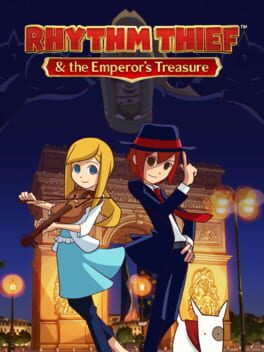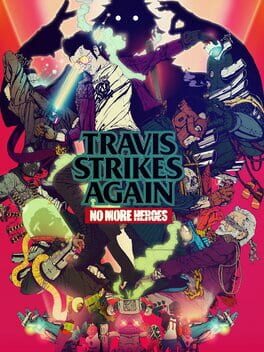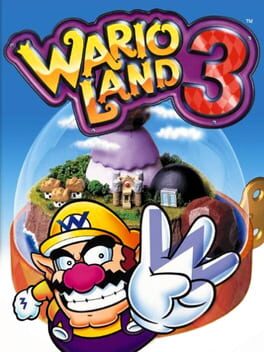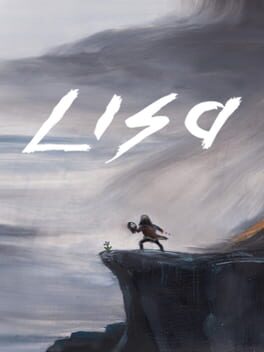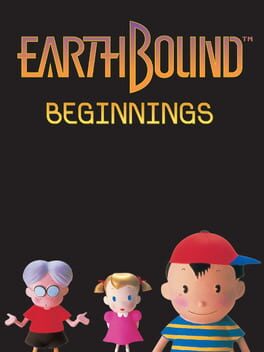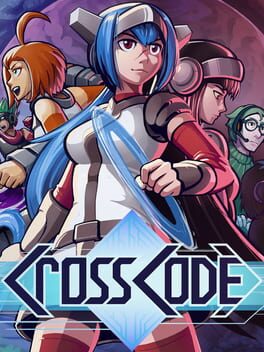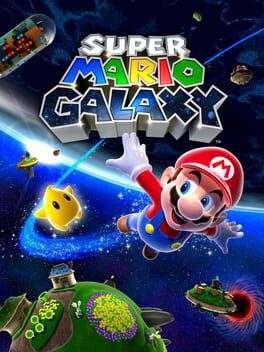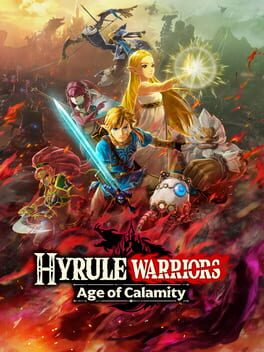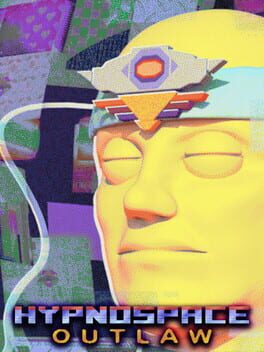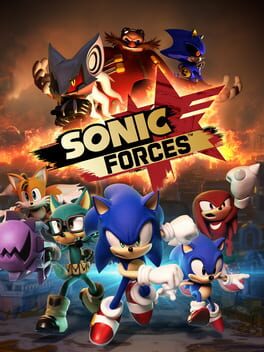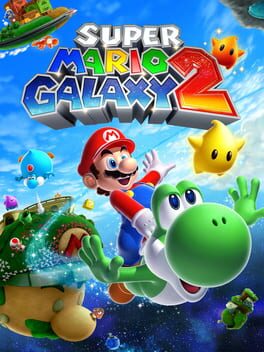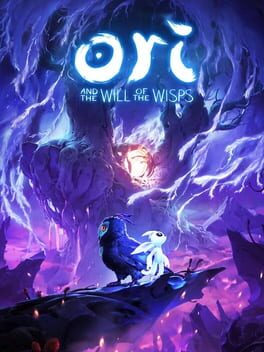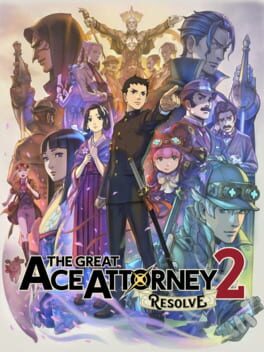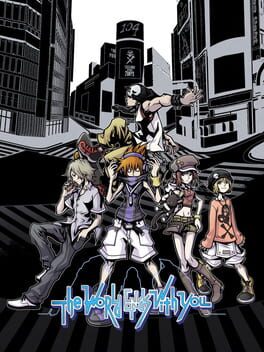chump
An odd marriage of Rhythm Heaven and the Professor Layton games, Rhythm Thief certainly matches Layton's infinite sincerity in regards to its story. It's as cookie-cutter as they come, and yet it's presented to the player as epic, awe-inspiring, earth-shaking, in a way that's hard not to respect. But there's more than earnest storytelling underneath the professor's hat- his games are more accurately characterized by a burning passion for puzzles, one that Phantom R doesn't share for rhythm gameplay. Rhythm Thief pads out the space in between its sparse rhythm sections with one-note sidequests, one-note minigames, and one-note overworld traversal. Layton pads out the space in between his puzzles with more puzzles... and that's it. Phantom R doesn't care that the only real sense of difficulty in his rhythm sections comes from initial unintuitiveness, he considers a D a passing grade, and he makes you use the gyro controls. Professor Layton has more respect for his players. You want a rhythm game that uses both screens brilliantly, that not only embraces but elevates the inherent cheesiness that comes packaged with the genre, and that actually feels worth mastering? Hack your 3DS and download Elite Beat Agents.
Over the very few of Suda's games I've played, he's resonated with me much more as a humorist than as a game designer. Grasshopper Manufacture Presents: Travis Strikes Again - An Unreal Engine Experience seems like a perfect vehicle for his comedic stylings, cruising through a mishmash of half-baked ideas with a protagonist who's just self aware enough to straddle the line between thinly-veiled industry satire and unintentional self-deprecation. The art team's dedication to constantly changing up the visuals also helps this premise, in fact I'd be privy to label it as mixed media at this point. Live action, magazine print ads, (both PS2- and PS3- era!) low-poly CG, in-motion manga, and the always hilarious early home computer visual novel. These homages go a long way to break up the often monotonous gameplay, but that's the main problem. Like in the rest of Travis's noble quests, the combat here is just barely passable, this time carried by the rush meter, which increases in power if you avoid getting hit in between uses. Trying to maximize the number of level 3 rushes you get serves as a nice self-imposed challenge that works towards balancing out the otherwise low difficulty, but that's only a small issue in the grand scheme. The bigger unfried fish is what should've been a slam dunk for the game, variety. The changes in linearity, or camera angles, or light puzzle elements from game to game don't affect the baseline in any meaningful way, and as a result individual games don't feel like they have much of an identity. Humor, too, feels largely independent of gameplay context, instead being almost entirely contained in the dialogue. The first No More Heroes had Travis out of breath when running for more than a few seconds, motorcycle crashes that took way too long to get back up from, weightlifting that physically hurt your fingers from the button mashing required. Acts that were humorous in context because they were normal, even serving to point out the absurdity of the main character having assassin work on his daily to-do list. There's infinite possibilities based on the premise, but pretty much none of the humor in Travis Strikes Again stems from anything that happens to the player. At one point, Travis objects to being part of a visual novel, fearing that even briefly interrupting the normal hack-and-slash action would lead to disappointed gamers, even namedropping the dreaded Metacritic user score. It's a good thing nobody knows about this site yet, because he'd find at least one here, albeit for the exact opposite reason.
2000
The fourth Wario Land is a personal classic, but even I must bow my head and acknowledge 3's superior dedication to unconventional platforming status. The experiment that began with Wario Land II reached its natural conclusion here, and the end result makes 4's health meter look bog standard in comparison. In this land, reward and punishment are one and the same- bizarre, often grotesque perversions of Wario's sprite and, by proxy, the way that he has to look at the world around him. Whether these transformations are powerups or power... downs depends entirely on the situation. Becoming a spring allows Wario to reach higher-up areas, just make sure to avoid it when trying to make your way downwards. Invisibility lets him bypass motion-detecting security doors, but incidentally turns rudimentary platforming into a challenge. Each of the dozen-or-so abilities can be described in a similar double-edged fashion, but their cleverness really has to be seen to be believed. Figuring out which transformation you need while figuring out which key you need while also figuring out how to get that transformation in the appropriate spot (and, if necessary, even how to get rid of it once you're done) as every bite-sized stage unravels and reveals its deliciously tricky nature. When state transitions, the very foundation of a platformer, are a puzzle in and of themselves, the level design comes naturally, and Wario Land 3 leaves no stone unturned while constructing its areas to enhance the game's supreme mechanical cohesion. Well, except...
Where it loses me: returning to previous stages after an unlock. These come in the form of Samus Aranesque moveset additions or more unique contextual changes to the world map, and are all almost unanimously disappointing. Instead of requiring the player to evaluate what's different when coming back to a familiar place, usually some obstacle near the entrance has been removed, which lets Wario access, in essence, an entirely new level. It's hard to fault the game for this decision, as forcing inter-playsession analysis is typically seen as a sin against the tenants of handheld gaming, but it still feels like the only blight on its otherwise hyper-focused design. In retrospect, 4's "hurry up" sections present a solution to this problem: portions of the game that reward observant players who are able to predict level mutations before they happen without breaking the pick-up-and-play mantra. Of course, including these means Wario has to be capable of getting the lead out, which, also in retrospect, creates another conundrum. 3's sluggish Wario is hardly bothered by traditional platforming punishments that serve to slow him down, as he can barely even move in the first place, but 4's agile Wario clashes with the inherently time-consuming nature of transformations. It's an issue that, I, in my infinite wisdom, don't have the solution to, but perhaps it's one that indicates how distinct the series is above all else- it's hard to imagine that guy in red running into anything similar.
Where it loses me: returning to previous stages after an unlock. These come in the form of Samus Aranesque moveset additions or more unique contextual changes to the world map, and are all almost unanimously disappointing. Instead of requiring the player to evaluate what's different when coming back to a familiar place, usually some obstacle near the entrance has been removed, which lets Wario access, in essence, an entirely new level. It's hard to fault the game for this decision, as forcing inter-playsession analysis is typically seen as a sin against the tenants of handheld gaming, but it still feels like the only blight on its otherwise hyper-focused design. In retrospect, 4's "hurry up" sections present a solution to this problem: portions of the game that reward observant players who are able to predict level mutations before they happen without breaking the pick-up-and-play mantra. Of course, including these means Wario has to be capable of getting the lead out, which, also in retrospect, creates another conundrum. 3's sluggish Wario is hardly bothered by traditional platforming punishments that serve to slow him down, as he can barely even move in the first place, but 4's agile Wario clashes with the inherently time-consuming nature of transformations. It's an issue that, I, in my infinite wisdom, don't have the solution to, but perhaps it's one that indicates how distinct the series is above all else- it's hard to imagine that guy in red running into anything similar.
2014
The concept of human beings on the verge of extinction is something that has been done numerous times in every medium, but nothing really does it in the way that Lisa does. The game's setting isn't a place where everyone is constantly fighting for their own survival, but rather one where the boredom and cabin fever from the futility of living in a doomed world has driven everyone towards a unique brand of wackiness. Elements like the vast amount of possible party members, permanent consequences like losing an arm or having playable characters die for good, and the game's perfectly fitting soundtrack certainly do a great job of making Lisa's setting come to life and feel worth learning about. The game is held back by a couple of flaws, however, like subpar art, locations that are pretty forgettable, and avoiding consequences by reloading saves being too easy, but all-in-all it's really one of the best RPGs of the past decade. It's a game that I find really sticking with me more and more as time goes by, and in a time when everyone's trying to create their very own Earthbound, Brad's story is possibly the only one that feels as worth experiencing as the original.
Like most of the western world, I played this one after Earthbound, and I'd be lying if I said that this fact didn't influence my perception of them both. I'm usually down to defend games that have retroactively become known as prototypes for their sequels (see: my opinions on Portal 1 & Paper Mario 1) but it's harder to here. Their respective battle mechanics are a good microcosm of this. Earthbound's satisfying sound design, clever flavor text, and strategic rolling health bar successfully come together to make battling enjoyable both on its own merits and as a parody of run-of-the-mill JRPGs, while Mother's spam-attack-to-win battles end up feeling like... ones from a run-of-the-mill JRPG. Stuff like calling your dad on the phone and having to run a hundred yards to teleport are difficult to appreciate here just because Earthbound ended up making them iconic, but, it wouldn't be fair to say that Mother doesn't have its own identity. Specifically after the point where Ninten and Lloyd start bein' friends, the game really takes shape as a true do-it-yourself journey, as opposed to the more linear affair that would follow. There's hardly an inciting incident, railroading is only present in a literal sense, and finding the eight melodies is a scavenger hunt instead of a sequence of events. The humor, too, is incredibly lowkey, mostly at the expense of the player. Only ever being able to hear the first few notes of the most beautiful song ever produced by an NES before getting interrupted by a maniac truck or a Wally. Finally finding that last melody you're missing and being wordlessly mocked by a cactus with the smuggest 12-pixel smile you've ever seen in your life. You gotta man up and learn to laugh at this stuff.
2018
I feel like it's a love it or hate it kind of game. It's also a really difficult game to criticize. If you have a problem with how long the game is, how most of its quests feel like generic, disconnected busywork, or how its sense of constant progression is too manipulative to be considered well designed, then that's fair. But if you were to say that any of these things were faults, someone else could just as easily argue that you're missing the point and they actually succeed in their true purpose of characterizing the MMO that the game takes place in, which is exactly the side of the fence that I'm on. CrossCode is the rare indie game that establishes a unique concept and actually ends up delivering on it. The game takes advantage of nearly everything that it establishes. The emphasis on convenience that evolves naturally from its MMO influence fits like a glove around its action RPG gameplay. Its mechanics are absolutely rock-solid from the very get-go, and there's never a single second where they aren't being expanded on in every direction. I wasn't crazy about the story- I thought it was pretty predictable and I never really found myself liking any of the characters all that much, but it's hard to deny how ambitious it is. It's got a really unique tone to it that I couldn't really see being pulled off without its particular setting, and it does reach towards some potentially interesting themes, although it doesn't flesh them out as much as I'd like it to.
I know I said that it's a difficult game to criticize, but I'm gonna try to do it anyway. The game's emphasis on convenience starts becoming a con most notably when your party members never end up feeling like real people. They respond to you instantly even when they're in the middle of something that requires a decent amount of focus, they hardly ever die, and they accept you as their leader no matter the circumstances- why would this ever happen in an MMO if I'm at a lower level than you and can't even talk? Aside from that, the game decides to absolutely neuter its pacing about 85% of the way through, which is a decision that doubly goes against what makes CrossCode a great game in the first place- it doesn't make sense contextualized either in its MMO world or outside of it.
I know I said that it's a difficult game to criticize, but I'm gonna try to do it anyway. The game's emphasis on convenience starts becoming a con most notably when your party members never end up feeling like real people. They respond to you instantly even when they're in the middle of something that requires a decent amount of focus, they hardly ever die, and they accept you as their leader no matter the circumstances- why would this ever happen in an MMO if I'm at a lower level than you and can't even talk? Aside from that, the game decides to absolutely neuter its pacing about 85% of the way through, which is a decision that doubly goes against what makes CrossCode a great game in the first place- it doesn't make sense contextualized either in its MMO world or outside of it.
2007
The first Mario platformer to prioritize presentation over gameplay. Compared to 64 and Sunshine, both movement options and level exploration take a big hit, and when you consider the hardware that the game exists on, it's not hard to see why. I most likely don't need to mention that I'm against casualization, but I probably wouldn't be if every game did it as well as Super Mario Galaxy. The unquestionably phenomenal soundtrack, the visuals that still look great 13 years on, the delightfully extreme ranges in tone from galaxy to galaxy, the grand scale that feels worthy of the outer space setting, and Nintendo's trademark imagination at its very best lead to some of the most fantastical worlds ever seen in a video game, even if the platforming itself isn't fantastic.
There's some decent improvements to the gameplay of the original Hyrule Warriors in here- the shorter optional levels help break up the repetitiveness somewhat, and the character upgrades being merged with a kingdom management-type overworld is actually really well done. Overall it's nothing spectacular, but it's much more gratifying than I went in expecting it to be.
...That's all well and good but none of it actually matters. Nobody's playing this for the Dynasty Warriors gameplay, and the truth is that Tecmo totally botched a golden opportunity to flesh out the inarguably weak story of one of the most well-received games of the past decade. A borderline incoherent time-travel premise and barebones character interactions aren't inexcusable until they're coupled with the real kicker: the lack of any real worldbuilding. Age of Calamity's Hyrule feels absolutely identical to Breath of the Wild's Hyrule despite being separated by 100 years and the apocalypse, and because of this the game's existence doesn't feel justified. It doesn't add anything of value to the property it's playing off of, and it ends up being hard to recommend to even the biggest fans of Breath of the Wild.
...That's all well and good but none of it actually matters. Nobody's playing this for the Dynasty Warriors gameplay, and the truth is that Tecmo totally botched a golden opportunity to flesh out the inarguably weak story of one of the most well-received games of the past decade. A borderline incoherent time-travel premise and barebones character interactions aren't inexcusable until they're coupled with the real kicker: the lack of any real worldbuilding. Age of Calamity's Hyrule feels absolutely identical to Breath of the Wild's Hyrule despite being separated by 100 years and the apocalypse, and because of this the game's existence doesn't feel justified. It doesn't add anything of value to the property it's playing off of, and it ends up being hard to recommend to even the biggest fans of Breath of the Wild.
2019
Covertly one of the most well put-together worlds ever. Not a single pixel feels as though it doesn't directly contribute to characterizing Hypnospace, and the end result is a genuinely evocative encapsulation of the old Internet, of observation without participation, of the ways that humans respond to changing technology, and of communication as a whole. I can't fathom a more realistic portrayal of how Hypnospace would have turned out if it really existed, and combing through it to uncover its secrets was some of the most fulfilling exploration I've ever experienced. It's really hard to put into words how special this game is. An absolute titan of passion, creativity, and authenticity that deserves to go down as an all-time indie great.
The extremely low level of difficulty prevents it from being a good puzzle game, but perhaps more importantly it contributes to the strange lack of tension and intensity that should be very present within the game's scenario, best illustrated by the final "challenge." Although in my opinion the story goes one plot twist too deep, it's still entertaining to watch it unfold, especially thanks to the game's clever subversion of Japanese character tropes. But the non-notable gameplay causes it to leave your brain soon after it's over, and I doubt I'll ever play through it again. There's also the massive missed opportunity of the game not keeping track of how long it took you to complete each puzzle- trying to beat your best time would probably upgrade redoing escapes from just tolerable to actually fun.
2017
Transparently uninspired and lazy. Not the worst Sonic game by any means but its existence makes me angry. I'm not someone who's gonna tell you that the earlier Sonic games were masterpieces but they were clearly products of passion, even the not so great ones, not soulless corporate derivations like this game. The level design is just nothing. Classic Sonic is only in this game to piggyback off of Generations' acclaim. Custom characters only exist to give the game a gimmick and some viral appeal. As usual, the sound team members are the only ones who are trying, Infinite's theme is a banger.
2010
Items marked on the map, quests being logged for you in Bethesda-esque fashion, and the direction that you're "supposed to go" always being clear. Making a sequel much less exploration and discovery focused than its predecessor isn't necessarily a bad thing, but the game really needed some other element to fill in those gaps. At first it seems like it sets up action to be that solution, but the game's combat falls painfully short once you realize there's absolutely zero consequence for any mistake you might make, and on top of that the customizable equipment hardly adds any complexity and instead pretty much only increases your stats in varying ways. What's left at this point is a sequel that's inferior to the original, but admittedly different enough so that they're both worth playing.
It's not all bad though. The visuals, music, and movement mechanics are still excellent as expected, albeit less impactful the second time around. The locations are much more interesting than they were in the first game, and there are some great little moments that are more present here than in The Blind Forest. For me, it was speaking to Kwolok for the first time, seeing the sun peek through the mountains in the background when arriving in Baur's Reach, and of course, everything that had to do with the Wellspring Glades.
It's not all bad though. The visuals, music, and movement mechanics are still excellent as expected, albeit less impactful the second time around. The locations are much more interesting than they were in the first game, and there are some great little moments that are more present here than in The Blind Forest. For me, it was speaking to Kwolok for the first time, seeing the sun peek through the mountains in the background when arriving in Baur's Reach, and of course, everything that had to do with the Wellspring Glades.
Stop me if you've heard this one before. A cartoonishly intimidating prosecutor with a heart of gold and a talented but inexperienced defense attorney walk into a courtroom, and leave having solved an infamous, decade-old case that every single main character is somehow connected to. I'm not accusing Takumi of self-plagiarism, or of running out of ideas, but his proclivity towards familiar motifs ends up making things feel stale. If anything, this is less of a critique and more of a testament to his writing prowess. Grand, sweeping mysteries and their dramatic resolutions are so routine for Ace Attorney (and Ghost Trick...) that they no longer wow as they once did. I think my review of the first game completely missed the mark, because, despite being similarly underwhelmed with this one, pretty much everything that I complained about has been greatly improved. The pacing's far better, the side characters are more memorable, Sholmes isn't as annoying, and, most importantly, foresight feels required, especially in that behemoth of a final case. The one unpatched hole is the utilization of duology-specific gimmicks. Juries are hardly used, and are eventually straight-up abandoned. Deductions are still far too simple, meaning that the investigation half of every case ends up boring- the mini-trials afforded by psyche locks are sorely missed. Combine this with the aforementioned plot outline similarities and it feels like this game doesn't have much of an identity. Once you pick up on certain story seeds being sewn, it's pretty easy to predict how things will play out in a general sense, even if you're not sure of all the details. My new guess as to why I wasn't ever gripped or totally intrigued is simple: it's just another Ace Attorney game. And, unfortunately, as much as the original trilogy led me to believe otherwise, I think I've realized that the series ultimately isn't for me.
I've never played a game so unwilling to capitalize on its strengths. The World Ends with You's battle mechanics are genius in numerous ways: the gesture system being fully customizable so that players aren't ever stuck with a hand movement they find uncomfortable, the emphasis on strategic multitasking giving the dual screens a purpose, the delicate balance between maximizing your partner's damage and filling the fusion meter. My favorite part is the light puck- passing it between the top and bottom screens just in time for a strong attack is reminiscent of setting up an alley-oop or volleyball spike. It doesn't completely encapsulate a necessary trust in another person, but it comes about as close as possible for a system in which you're in full control of two distinct entities. Creating a set of mechanics this deep on a platform as unconventional as the DS is no easy feat, but TWEWY is all for embracing unconventionality. It starts at the top: while RPGs typically trip over themselves in trying to usher the player towards as many interesting locations as possible, Neku & co. remain in the same area code for the duration. As a result, conventionally static shopkeepers act accordingly, refusing to tell you what specific items do unless you've spent enough money for them to recognize your face. Normal overworld music would feel out of place, so instead Shibuya's background noise is lyrical and persists through loading zones. The most impressive part of this mindset is the game's complete reversal of random battles. The player is responsible not only for initiating encounters, but for setting both the enemy's and their own level. The end result is probably the most effective self-serving difficulty system I've ever come across. Daring yourself to fight a long chain of noise with barely any health just for the constant stream of bling you'll receive at the end never loses its appeal. Grinding is fun!
But the review doesn't end with that. Trying to recall why it feels like each of the twenty-one days takes so long despite not much actually happening in them is more difficult than you'd might expect. It's not because there's a lot of mandatory battles, which should be the case given how steep the learning curve is, but instead we're treated to hours and hours of melodramatic anime-isms, dialogue that tells and doesn't show. And yet the plot is completely lacking on multiple fronts, most notably its failure to characterize The Game in any meaningful capacity. The audience is never shown the players' desperate scramble to coordinate plans in the first few days or their upheaval in relations once they realize it's actually a competition. In fact, we're only ever introduced to two players beyond the main cast, and the pressure of the ticking daily time bombs never truly makes itself known in either the dialogue or the gameplay. How anyone can take the story seriously after Shiki reveals how she died is beyond me. I'm not a fool, I expect pants-on-head stupid plot twists from these types of games, but I draw the line when it drags great gameplay to a screeching halt. Although it seems small, the biggest sin the game commits in this department is in the choices the player is presented from the game over screen. Instead of being allowed to reorganize your pins and precisely adjust your difficulty level, you're only given options to retry on easy mode or reload a save. Since the player has to save manually, this works as a deterrent against changing up your strategy and doing anything else besides giving up and getting an essentially automatic win after your first few tries. It's this guidance away from a fulfilling experience and towards a smooth one that rubs me the wrong way. If I had to guess, I'd say that most players don't end up more than ankle-deep in the combat's learning curve. I went out of my way to fight as many types of noise that I could and still didn't feel like I made it far past the tip of the iceberg. Maybe when the burnout from reading through all the game's text boxes lifts I'll play through the bonus content and my opinion will change, but for now, I can't see TWEWY as anything other than a great game trapped in a terrible Game.
But the review doesn't end with that. Trying to recall why it feels like each of the twenty-one days takes so long despite not much actually happening in them is more difficult than you'd might expect. It's not because there's a lot of mandatory battles, which should be the case given how steep the learning curve is, but instead we're treated to hours and hours of melodramatic anime-isms, dialogue that tells and doesn't show. And yet the plot is completely lacking on multiple fronts, most notably its failure to characterize The Game in any meaningful capacity. The audience is never shown the players' desperate scramble to coordinate plans in the first few days or their upheaval in relations once they realize it's actually a competition. In fact, we're only ever introduced to two players beyond the main cast, and the pressure of the ticking daily time bombs never truly makes itself known in either the dialogue or the gameplay. How anyone can take the story seriously after Shiki reveals how she died is beyond me. I'm not a fool, I expect pants-on-head stupid plot twists from these types of games, but I draw the line when it drags great gameplay to a screeching halt. Although it seems small, the biggest sin the game commits in this department is in the choices the player is presented from the game over screen. Instead of being allowed to reorganize your pins and precisely adjust your difficulty level, you're only given options to retry on easy mode or reload a save. Since the player has to save manually, this works as a deterrent against changing up your strategy and doing anything else besides giving up and getting an essentially automatic win after your first few tries. It's this guidance away from a fulfilling experience and towards a smooth one that rubs me the wrong way. If I had to guess, I'd say that most players don't end up more than ankle-deep in the combat's learning curve. I went out of my way to fight as many types of noise that I could and still didn't feel like I made it far past the tip of the iceberg. Maybe when the burnout from reading through all the game's text boxes lifts I'll play through the bonus content and my opinion will change, but for now, I can't see TWEWY as anything other than a great game trapped in a terrible Game.
